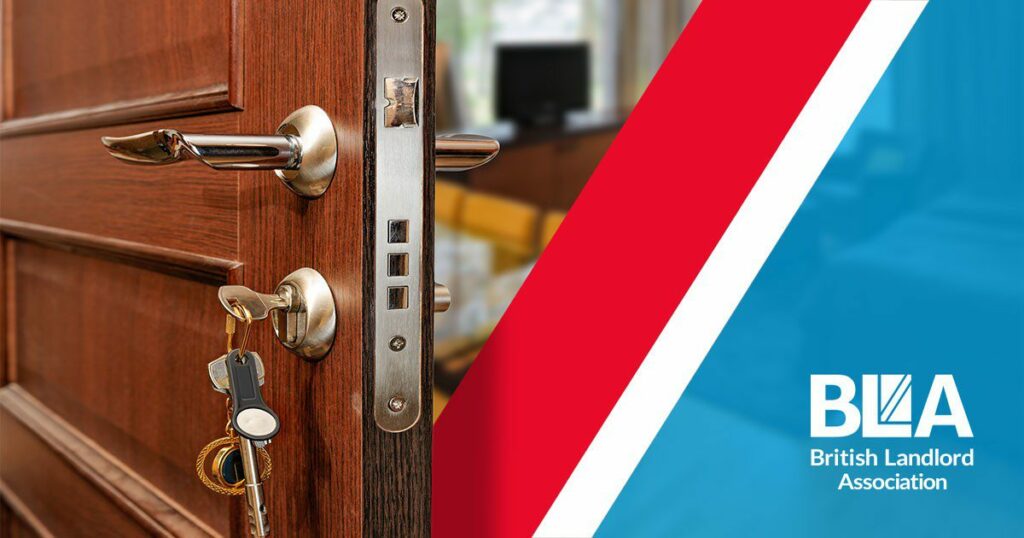How long does it take to extend a lease?
If you own a leasehold flat and you need to extend the lease to sell to achieve a better price or it’s for a mortgage this article may help you. Term of fewer than 65 years for leasehold properties will cause a problem obtaining a mortgage. It is important to understand the procedure and the criteria for a 90-year extension like:
- Are you assigning the rights to the person buying?
- Is it a lease extension request formal or informal?
- Is yours’s an absentee landlord?
- Does the freeholder dispute your premium offer?
- Do you dispute the freeholder’s legal costs?
The official route has statutory stages that legally must be met by the freeholder and leaseholder. Ignoring these will affect the time it takes to extend.
The following are the statutory periods that dictate the lease extension legal process:
- After the landlord has received the first Notice section 42, the landlord has 21 days to request Proof of the leaseholders right to a lease extension.
- After the landlord has received the first Notice section 42, the landlord has 2 months from the date of the Notice to send their Section 45 – Counter-notice.
- After the landlord has served the Section 45 Counter notice. The leaseholder has six months to negotiate the premium with the freeholder before applying to the Tribunal.
- After the landlord and leaseholder have agreed on a premium, it will take between 4 to 12 weeks to finalise completion.
- After completion, the new lease may take between 6 to 12 weeks to be registered at the Land Registry. This does depend on pro-active your solicitors are.
The process in total from start to finish can take from 8 to 36 weeks to complete. This does not include the registration with the HM land registry.
For this reason, some leaseholders tie the extension into a sale and convey the legal rights to extend to the new buyer.
What are the steps to extending a lease?
- Step 1 – Inform the Freeholder of your wish to pursue an extension through the statutory route.
- Step 2 – Appoint a lawyer who has experience in the field. Ideally, you want one who is a member of the Association of Lease Extension Practitioners (ALEP).
- Step 3 – Use an RICS surveyor who has experience in leasehold extension legislation and is familiar with the local property market.
- Step 4 – You need to make a formal offer by serving a tenants’ Notice through your solicitor.
- Step 6 – Negotiate a price through your solicitor, who will advise you on this.
Do I need legal expertise to extend my lease?
A lease extension is a complex process. Get it wrong, and it could delay and even prevent a sale or remortgage of a flat. You want to avoid the following pitfalls:
Leases usually include terms that prevent the flat owner from making changes to improve the flat without the landlord’s written consent.
Due to fraud, the HM Land Registry applies strict procedures and will reject any application if it is faulty.
90-year or 999 lease extension
99-year leases are the norm, and many leases tend to be 99 years; however, the longer the better. Some leases are 999 years long; however, they are not your typical run of the mill.
Absent freeholder lease extension
Absentee landlord & Vesting order – the solution when the freeholder is absent
Despite the problem a missing freeholder causes, there is a legal solution to this problem.
The law allows the leaseholder to apply to the County Court for what is known as a “Vesting Order”. This is done under the Leasehold Reform, Housing and Urban Development Act 1993.
This allows the County Court to allow leaseholders to skip serving a statutory notice. This is usually the first step when extending a lease or when buying the freehold.
Vesting orders provide the perfect solution to deal with a missing freeholder, which includes:
- Lease term extension applications.
- freehold purchase applications.
- The “Right to Manage” under the Commonhold and Leasehold Reform Act 2002.
- To deal with inadequate building maintenance and repairs. The First-Tier Property Tribunal have the remit to appoint a block manager, if appropriate.
Vesting orders – the process
The vesting order themselves do not extend the lease or transfer the freehold. However, they do allow for the proper steps to be carried out.
There are two steps to the process for Vesting Orders.
Evidence will be required for the court – which is evidence that you have done everything you can to find your freeholder.
The typical evidence that the court will expect is:
- Freehold Office Copies from the HM Land Registry, which reveals the property and provides the freeholder’s registered address.
- If the property is owned by a limited company, you should also provide details of the registered address from Companies House and confirm whether the company is still registered and active.
- evidence that the freeholder is no longer living at the address last known address. This can be a formal notice sent to the freeholder’s registered address.
- evidence of attempts to contact anyone who has tried to collect the ground rent or service charge. This could be the managing agent employed by the landlord.
- Proof that you have sent a formal notice to the freeholder’s last known address requesting their current contact details.
The court may require additional evidence: the more evidence you can provide, the better.
You might therefore consider providing the following additional evidence:
- a written statement that a visit was made to the last known address held on record for the freeholder. The statement will need to confirm that a forwarding address could not be obtained for the freeholder.
- evidence of advert in the local press regarding the whereabouts of the freeholder
- Instructing a private investigator to find the freeholder.
- Trace the freeholder from any managing agents or solicitors who had any involvement with the building.
- Contact the previous company that collected the ground rent or service charge on behalf of the freeholder.
After the relevant evidence has been sent to the County Court, the judge will consider the application. To determine that sufficient attempts have been made to trace the missing freeholder.
The court will then either make an order or set a date for a Vesting Order hearing.
After the case has been determined, the leaseholder is then given the judgment. They are then able to extend their lease or acquire the freehold.
What do I need to extend my lease?
First, read your lease carefully and check the term of the years left on your lease.
Even if you do not want to extend immediately, you should seek legal advice on the benefits of extending your lease under the Act.
The benefits of obtaining an additional 90-year term are: The ground rent is reduced to a peppercorn. A leasing term above 80 years will not attract marriage value.
When reading your lease, check the basics of qualifying for a lease extension. You can contact a surveyor and a solicitor who specialise in Leasehold properties.
The solicitor can check if you and the building qualify under the Act before going any further. The surveyor will be able to give you a rough guide as to the likely premium for a lease extension.
This lower premium should be used for the purpose of the section 42 Notice. This will allow a margin to negotiate the premium to be paid.
It is important to note the Act states that the figure used in the Section 42 Notice must be realistic.
The surveyor might need to justify the valuation for the notice figure if it came to in the Tribunal. So, the figure should be correct, albeit at the lower band of the actual valuation.
A solicitor can draft a Section 42 Notice, which starts the claim. Information like the current ground rent, service charge demands, managing agent information if applicable.
Your solicitor will also need the freeholder’s address for service.
Once a valid section 42 notice is served by your solicitor, it sets in motion a strict timetable.
A landlord will likely request payment of the statutory deposit once the Notice is received. This will be either 10% of the premium quoted in your first Notice or £250.
You will need to make sure you have the statutory deposit money before serving the Notice to the landlord.
This is important as your solicitor has a period of 14 days to make the payment to the freeholder’s solicitor.
They will hold the deposit money as a stakeholder. The deposit paid is offset on completion once everything has been agreed upon.
The surveyor will need access to inspect the property to carry out the valuation. If the property is rented, then you will need to make arrangements with your tenant for access.
Once 2 months have expired from the date the Section 42 Notice was served, you should receive a Counter-Notice from the landlord.
Suppose the landlord fails to serve a Counter-Notice. In that case, the consequence is that the extension will be granted on the terms set out in your Notice.
The landlord may, in some cases, offer an informal deal alongside the Counter-Notice, and you should seek legal advice before you accept.
Upon receipt of the Counter-Notice, the surveyor will usually begin negotiations. There is a two-month period, the statutory negotiation period.
This when a surveyor will try to reach an agreement with the freeholder.
Once the two-month negotiation period is up. The solicitor will reassess the progress being made between the parties and consider applying to the First-tier Tribunal (Property Chamber) (the Tribunal).
If the surveyors are close to a deal, it is usual to allow further time for further discussions.
However, an application to the Tribunal must be made at least 2 months from, but within six months of the date of the service of the Counter-Notice. If not, then the Notice will be considered withdrawn.
The two months must lapse (statutory negotiation period) before having a further four months to make an application to the Tribunal.
The timetable in leasehold enfranchisement is strict, and the deadlines must not be missed.
Once the lease extension premium has either been agreed upon. The solicitors would agree on the form of the new lease and proceed to complete the lease extension.
A completion date will be agreed upon for the extension. The property register at the HM Land Registry will be amended accordingly. That is the process completed.
Best lease extension calculator
The internet provides many websites that offer a lease calculator. You should be cautious as the premium is a very rough guide and not one you can rely on. You can try this Lease Calculator as it seems the best we could find.
From the Leasehold Advisory Service, you can obtain lists of past First-Tier Tribunal lease extension decisions, which can be very useful.
FAQ
What is a marriage value?
Any term below 80 years attracts a marriage value. This means if you extend, the freeholder is entitled to 50% of the value which the extension adds to the property.
How much can it cost to extend my lease?
The price will vary due to several variables, including the flat’s value, the unexpired term and ground rent. It depends on your negotiations skills too.
It is a good idea to ask other leaseholders in the block how much their extensions cost. This will insight will provide a helpful guide.
Can I profit from flats with short leases?
The shorter the lease, the cheaper the property is worth. Some properties with short 20-40 years leases sell at bargain prices.
However, if you’ve owned the property for two years, you have a legal right to extend. Extending short leases can be expensive. However, the cheap property’s combined cost and the lease extension adds up to less than you could sell it for once it has a new 99 or 125-year lease.
Can a lease extension be refused?
As long as you are a qualifying tenant, the freeholder cannot refuse to grant you an extension. It is your legal right to have an extension.
What is the minimum lease extension?
The formal process allows leases to be extended by 90 years. However, an informal agreement with the landlord could be agreed upon for a shorter extension. There is no minimum requirement for the remaining term, as long as the initial lease was for at least 21 years.
Be mindful that once the term falls below 80 years, the cost of extending will become much higher due to Marriage Value.
What is an informal lease extension?
If you do not meet the eligibility requirements, you can still contact your freeholder to make an informal agreement. The difference is that they are not legally required to agree to the extension or follow the same rules for a qualifying leaseholder (for example, reducing the ground rent to peppercorn).
Is stamp duty payable on a lease extension?
Stamp Duty is only payable on an extension if the premium agreed is more than £125,000, similar to any property purchase.
The British Landlords Association is a free national landlord association, why not join us for free today!
Top read Blogs:
Landlord Electrical Safety inspection report (EICR) 2021 Guide
UK Interest Rate History – dramatic 300 year Base Rate graph





